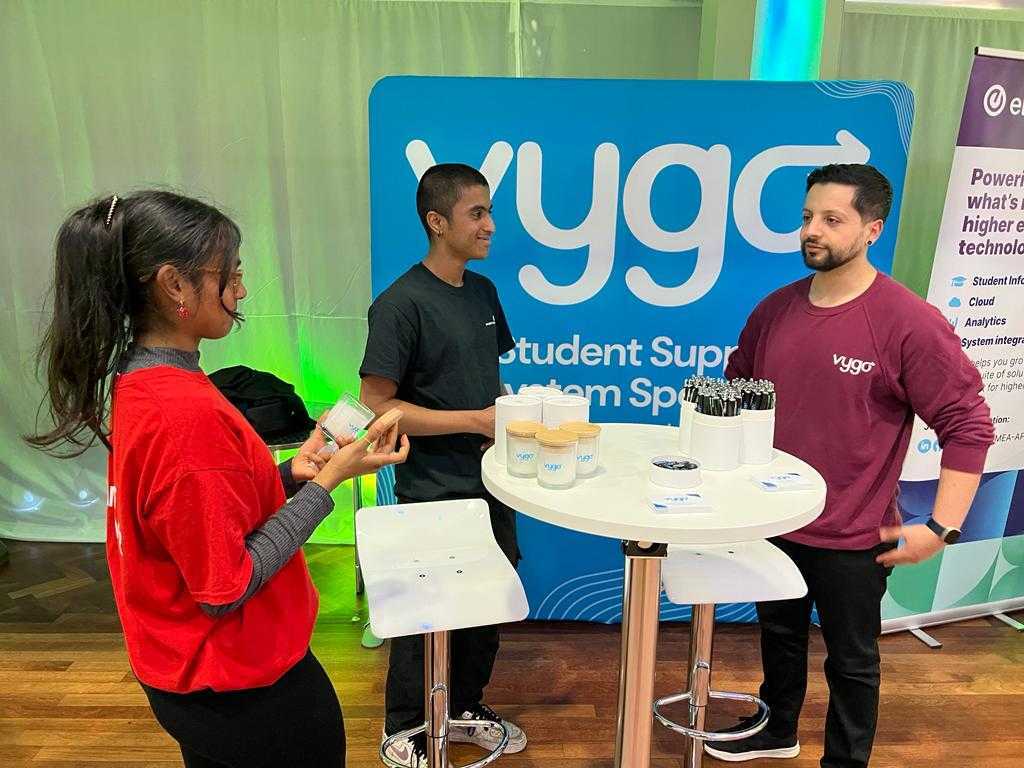How to Support Diversity and Inclusion in Career Services and Alumni Relations: 10 Essential Steps

Hi, this is Hannah from Vygo!
At Vygo, we are deeply committed to promoting our partners' diversity and inclusion within the higher education landscape. We firmly believe that fostering an inclusive environment leads to better opportunities, increased engagement, and a stronger sense of community. This guide will outline ten essential steps to support diversity and inclusion in career services and alumni relations. By following these steps, you can create a more inclusive and equitable environment that empowers students and alumni from all backgrounds.
1. Develop an Inclusive Strategy
To effectively support diversity and inclusion, it is crucial to develop a comprehensive strategy that aligns with the values and goals of your institution. Define clear objectives, measurable targets, and actionable steps that resonate with the UK higher education landscape. Lay a solid foundation for implementing diversity and inclusion initiatives that make a real impact.
2. Establish Collaborative Partnerships
Collaborate with student organizations, affinity groups, and community organizations focused on diversity and inclusion. By working together, you can leverage each other's strengths and resources to create an impactful and inclusive experience for students and alumni.
3. Build an Inclusive Network
Foster connections between students, alumni, and professionals from underrepresented groups. Encourage mentoring relationships, networking events, and alumni panels that showcase diverse perspectives and experiences.
4. Implement Bias-Free Recruiting Practices
To ensure a fair and inclusive recruitment process, it is crucial to eliminate bias from your practices. Train recruiters and hiring managers on unconscious bias and implement standardized interview questions and evaluation criteria. Additionally, consider anonymizing resumes during the initial screening process to focus solely on qualifications and skills, thus promoting a level playing field for all applicants.
5. Offer Diversity-Focused Programming
Organize events, workshops, and seminars highlighting diversity, equity, and inclusion. These initiatives can include career fairs that feature employers committed to diversity, workshops on cultural competency within the UK context, and panels discussing the experiences of underrepresented groups. By offering such programming, you create opportunities for education, networking, and empowerment within the higher education community.
6. Provide Resources and Support
To foster an inclusive environment, it is essential to provide tailored resources and support systems. Establish mentorship programs, affinity groups, and leadership development initiatives specifically designed for underrepresented students and alumni. By offering targeted support, you can help individuals overcome challenges, access opportunities, and thrive in their careers.
7. Celebrate Diversity and Achievements
Recognize and celebrate the accomplishments of diverse students. Highlight success stories that showcase the impact of diversity in career advancement. By amplifying these achievements, you inspire others and reinforce the importance of diversity and inclusion.
8. Foster Inclusive Alumni Engagement
Engage alumni from diverse backgrounds in alumni relations activities. Create opportunities for them to contribute their expertise, network with current students, and provide mentorship support. By fostering a sense of belonging and continued involvement, you strengthen the alumni community and provide support for the next generation of students.
9. Embed Inclusion in Career Development
Integrate diversity and inclusion into career development services. Offer resources and workshops that address the unique challenges faced by students and alumni from underrepresented groups. Provide guidance and support in navigating career paths, overcoming barriers, and leveraging strengths.
10. Continuously Evaluate and Improve
Regularly evaluate the effectiveness of your diversity and inclusion initiatives. Gather feedback from students, alumni, and staff to identify improvement areas and measure your efforts' impact. Use this feedback to refine your strategies, set new goals, and ensure that diversity and inclusion remain prioritised within the community.
Conclusion
By implementing these ten essential steps, a more inclusive and supportive environment for career services and alumni relations can be created. This will enable the empowerment of students and alumni from all backgrounds and the fostering of a stronger sense of community. Embracing the power of diversity within the UK higher education landscape is essential, and by working together, we can build a future where all students and alumni have equal opportunities to succeed.
Want to see how Vygo can help you with your alumni mentoring program? Book a demo today to learn more about our comprehensive support system, personalised approach, and analytics tools. Contact Vygo now.


